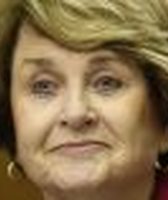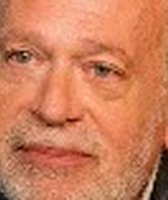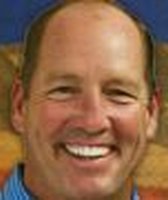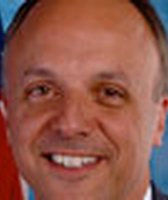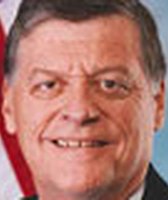Stand up for the facts!
Our only agenda is to publish the truth so you can be an informed participant in democracy.
We need your help.
I would like to contribute
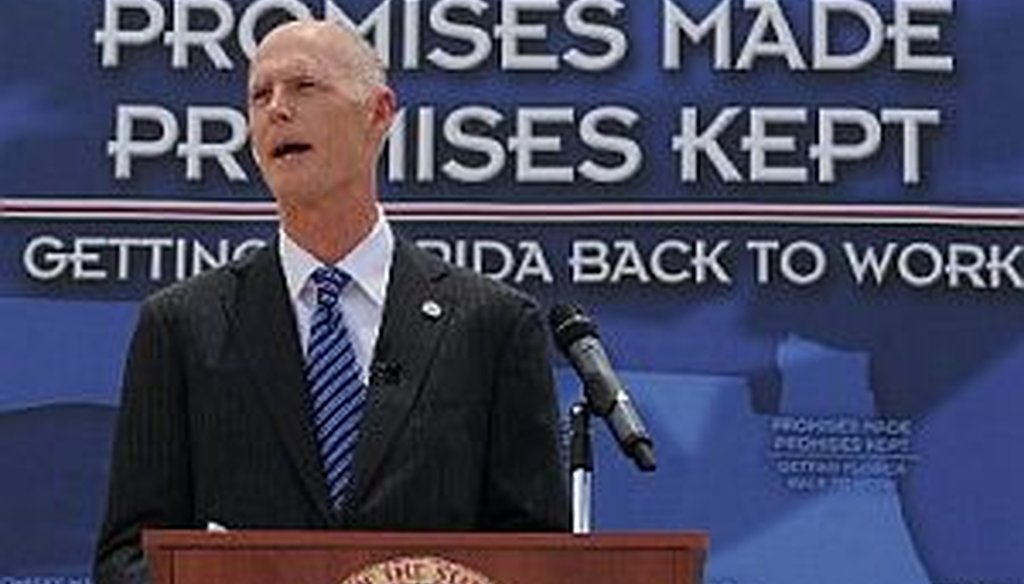
PolitiFact Florida measures Gov. Rick Scott's promises on the Scott-O-Meter.
More Floridians are working since Rick Scott, the self-anointed "jobs governor," took office a year ago.
And yet, today, PolitiFact Florida rates Scott's central campaign promise of 700,000 new jobs Stalled.
Why?
The promise Scott made as an outsider businessman isn't the one he's keeping from his desk in the state Capitol.
PolitiFact Florida is tracking 57 of Scott's campaign promises, and one year in, we find Scott has had more successes than failures. But in the case of the jobs promise, he has much more work to do.
Progress report
A year in, Scott has kept a third of the campaign promises we track on the Scott-O-Meter. He sold the state planes. He hasn't taken the $130,000 governor's salary. He eliminated what critics call "tenure" for new K-12 teachers.
He also reached a compromise with the Republican Legislature on a plan to cut the state workforce by 5 percent (it shrunk about 3.5 percent last year) and a promise to reform Citizens Property Insurance and allow the state-run insurer to charge market-based premiums (the Legislature wasn't ready to go that far).
Of 57 promises, he's kept 19. Just a third of his promises are now rated Broken or Stalled.
But all of that is just context for the promise Scott called his "whole campaign" — his vow to create 700,000 jobs over seven years.
Jobs promise
During the campaign, Scott said 700,000 jobs would grow from his seven-step plan for the state. State agencies would be held accountable for results from their budgets. Government spending would drop. The cost of regulation would fall. Florida would focus on job growth and retention. Its universities would be world-class. Floridians would pay lower property taxes — and the corporate income tax would disappear.
Keeping those promises, the plan said, would result in specific job growth:
• 365,000 jobs would come from tax and budget reforms, including eliminating the corporate income tax.
• 240,000 jobs would come from reducing unnecessary costs that Tallahassee places on Florida businesses.
• 60,000 jobs would come from "leveraging the economic development assets of Florida to attract key technology clusters."
The total promise was actually 665,000 jobs but, as Scott explained on the campaign trail, "It's just rounding."
Either way, Scott has abandoned the details of that plan, which he said voters had "reviewed ... and voted to enact."
He now promises that the state will generate 700,000 net jobs from all sources, whether they come from his reforms, or from simple cyclical economic recovery.
What's the difference?
As Scott ran for office, state economists forecast about a million jobs would emerge over seven years as the recession-battered state healed. Scott said his 700,000 jobs — the result of his carefully constructed plan — would come on top. In seven years, if Scott succeeded, the state would add 1.7 million jobs.
Now he says, "Instead of focusing on hypotheticals, I'm focused on what I know will be accomplished through my 7-7-7 plan — the creation of 700,000 jobs over seven years regardless of what the economy might otherwise gain or lose. Floridians will judge me not on what an economist in Tallahassee predicts, but on actual job growth each month."
And indeed, each month, he adds all new net jobs in the state to his tally, more than 100,000 so far.
He can be proud: Florida's job growth has outpaced national job growth.
But instead of more than 20,000 new jobs each month, he's now promising just over 8,300.
He's moved the goalpost by 1 million jobs.
Economists
Politically and practically, shifting makes some sense.
Scott made a promise to voters though it relied on many factors he couldn't control — especially the global and U.S. economies.
David Denslow, a University of Florida research economist, thinks Scott's entitled to a little renegotiating. He should be able to adjust that 1.7 million promised jobs to account for global and national pressures that weren't clear during the campaign. He should be able to adjust his 7-7-7 plan to nimbly respond to what's working, and what's not.
"If the national economy tanks, we have to cut him some slack," he said.
But to drop his goal by nearly 60 percent?
"The limit, I think, is exceeded in this instance," he said.
Tony Villamil, dean of the school of business at St. Thomas University and a long-time director of Enterprise Florida, the state's public-private economic development agency, wouldn't even hold the governor to a number.
"Jobs created significantly depend on the U.S. and global environment, which no governor can control," he said.
How would he judge a governor's success? By looking at the state's business environment.
And Scott's goals are on target, he said: cutting taxes, reducing regulation, marketing the state to businesses.
"Certainly the business environment, the things that he can control, are conducive to higher job growth," he said.
"The part that he can control — he's doing it right."
But Bill Seyfried, a professor of economics at Rollins College, points out that key parts of the governor's job agenda may not ultimately fall into place.
Scott's promise to eliminate the corporate income tax, for example, a centerpiece of the tax and budget reforms key to half of his plan's job creation, is Stalled.
"Since this hasn't occurred, the governor can make the case that it's unlikely that he'll achieve his goal," he said.
Just how is the governor performing on the 31 promises directly from his seven-step plan to 700,000 jobs? Nearly a third are Promise Kept or a Compromise. Nearly a third are In the Works. More than a third are Stalled or Broken.
Sean Snaith director of the Institute for Economic Competitiveness at University of Central Florida, predicts Scott's rhetoric will change when he runs for re-election.
"He wasn't a politician to begin with — because no politician would allow himself to be pinned to specifics like that,"Snaith said. "... I don't think he'll make the same mistake twice."
Our ruling
Scott pledged a result that will be hard to measure — that his seven-year, seven-step plan would boost the state's job market by 700,000. Not surprisingly, Scott the governor has backed away from what Scott the candidate promised.
It's not too late to return to the plan. Scott could tout the state's job growth, but resist adding to his 700,000 tally before his slow-acting medicine has time to work. He could task economists with evaluating the success of the policies he passes. He could take his own plan as seriously as he did 12 months ago.
But until then, we'll take him at his word — the ones he used to earn votes — and hold him accountable, as he asked us to. We rate his promise Stalled.
• • •
Lagging behind job creation promise
During the 2010 campaign, Gov. Rick Scott promised to "create over 700,000 jobs for the state of Florida" with his seven-year, seven-step economic plan. He said his plan would add to jobs already expected by the state's economists. That's 1.7 million jobs over seven years. Here's an update on the number of nonfarm jobs created since he came into office Jan. 4, 2011.

Source: U.S. Bureau of Labor Statistics *November jobs number is preliminary DARLA CAMERON | Times
Our Sources
Gov. Rick Scott, State of the State Address, March 8, 2011
Politifact Florida, "Gov. Rick Scott changes the math for '700,000 jobs," Oct. 4, 2011
PolitiFact Florida, "Rick Scott touts '7-7-7' plan to create 700,000 jobs in seven years," July 26, 2010
Gov. Rick Scott, "700,000 jobs in Seven Years: Setting the Record Straight," Oct. 7, 2011
Interview with David Denslow, research economist, Bureau of Economic and Business Research, University of Florida, Jan. 4, 2012
Email interview with Rick Harper, executive director, Office of Economic Development and Engagement, University of West Florida, Jan. 4, 2012
Email interview with Bill Seyfried, professor of economics, Rollins College, Dec. 30, 2012
Interview with Sean Snaith, director, Institute for Economic Competitiveness, University of Central Florida, Jan. 2, 2012
Interview with Tony Villamil, dean, School of Business, St. Thomas University, Jan. 3, 2012






